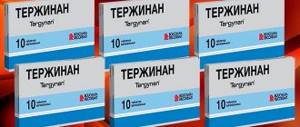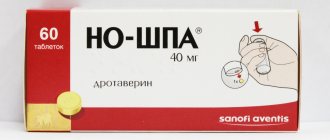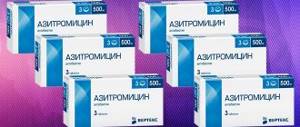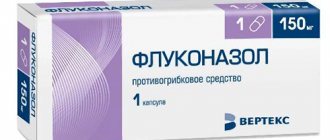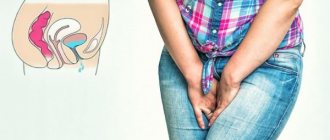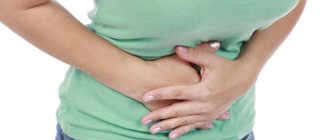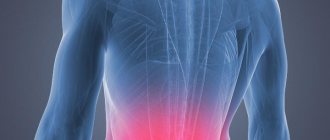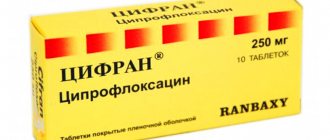It is impossible to get rid of infectious and inflammatory damage to the mucous tissues of the bladder without complex treatment. Therapy for the disease should include drugs with etiotropic action that have a detrimental effect on the infectious flora and auxiliary drugs (according to the clinical picture of the disease) - immunomodulatory, analgesic, anti-inflammatory and diuretic properties. Nimesil for cystitis is sometimes prescribed as symptomatic therapy to quickly block the inflammatory reaction and attacks of pain.
How does Nimesil work for cystitis?
Distinguished by a wide range of effects, this non-steroidal anti-inflammatory drug contains nimesulide as an active ingredient. It differs in the following action:
- Relieves pain and alleviates the condition;
- Normalizes temperature;
- Eliminates pain when urinating;
- Suppresses inflammation.
Nimesulide is well tolerated by women, allows long-term use and provides rapid relief - literally within a quarter of an hour relief occurs, lasting up to 7 hours.
Important! If symptoms are detected, you must contact a urologist or therapist to prescribe treatment.
Why does cystitis occur?
There are several reasons that provoke this disease in women, but the main predisposing factor is hypothermia.
In addition to it, the development of cystitis is promoted by:
- deficiency of vitamins and minerals;
- the appearance of hormonal imbalances;
- neglect of intimate hygiene standards;
- chronic inflammation and pathologies in the genitourinary system;
- sedentary lifestyle (causes congestion in the pelvic area).
Moreover, many women do not always empty their bladder on time, which leads to stagnation of urine and decomposition of urine. To avoid the problem, which is sure to manifest itself as subsequent pain and cystitis, you should visit the toilet at intervals of no more than 5 hours.
Release form of Nimesil and its composition
The medicine is available in powder form. Each dose of the product is packaged in a separate sachet containing 2 grams of the substance. One package can contain from 9 to 30 individual sachets.
Each dose of the active substance (nimesulide) contains 100 mg. This is a non-steroidal anti-inflammatory drug. The following additional elements are included:
- Fruit flavor;
- Maltodextrin;
- Sucrose;
- Ketomacrogol.
Application
The drug is usually prescribed one sachet twice a day. Immediately before administration, the contents of the sachet are dissolved in a cup of water. The powder should be taken after meals. The daily dose of the medicine is selected by the doctor individually. The duration of treatment is usually from 4 days to two weeks.
Important! The drug is not prescribed to children under 12 years of age. We recommend reading the article “treatment of cystitis in children.”
Features of application:
- For adolescents (over 12), the recommended dosage is the same as for adults;
- The medicine is prescribed with caution to the elderly.
Reviews
Nimesil is one of the most frequently prescribed NSAIDs by urologists, despite the existence of a huge selection of other drugs in this group. If you have cystitis, you can and should take it - you don’t have to endure pain and painful sensations. According to doctors, the drug very rarely causes negative sensations if taken for a short course and not abused. It has a rapid and prolonged effect, so one sachet per day is usually enough to relieve discomfort.
Patients also respond positively to Nimesil. Even for those suffering from gastritis and duodenitis, taking several packets per course does not cause an exacerbation, as often happens from Ibuprofen or Diclofenac. The form of administration is convenient, the taste is pleasant, not bitter. The only negative is that the medicine should not be given to children under 12 years of age, although girls also sometimes develop cystitis. Patients also note serious assistance in normalizing their general condition when taking Nimesil - the temperature drops and performance improves. Men take the drug for cystitis in order to carry out treatment without interruption from work - even with physical labor, it is possible to recover much faster. The video contains all the information about the drug Nimesil:
Drug absorption
Since Nimesil is quickly absorbed, its highest concentration is achieved after 120 minutes. The drug has fairly good penetrating ability.
The breakdown of nimesulide occurs in the liver, resulting in the formation of hydroxynimesulide, which enters the bile. Approximately half of the drug is excreted by the kidneys. A comprehensive study of the action of the drug showed that in case of kidney pathology, the half-life may be increased by half. Its half-life ranges from 3 hours 30 minutes to 6 hours.
Side effects
If the dosage is exceeded, the following manifestations are possible:
- Anaphylactic reactions;
- Nausea;
- Fatigue and lethargy;
- Arterial hypertension, etc.
General side effects include:
- Anxiety states;
- Headache;
- Hot flashes;
- Tachycardia;
- Pressure surges;
- Dizziness;
- Fear without motivation.
From the digestive, respiratory and urinary systems the following may be observed:
- Stool disorder (constipation or diarrhea);
- Flatulence;
- Hepatitis;
- Stomach ulcer;
- Nephritis;
- Urinary retention;
- Dyspnea;
- Bronchospasms, etc.
There is also the possibility of allergic reactions of various manifestations. If the dose is exceeded or the body has a clear negative reaction to this remedy, it is recommended to cleanse the stomach and intestines and take activated charcoal. And seek medical help immediately.
Contraindications
Before taking this drug, you should familiarize yourself with the list of conditions that are contraindications:
- Stomach ulcer (acute or history);
- Kidney failure;
- Liver diseases;
- Asthma;
- Exacerbation of intestinal pathology;
- Tendency to bleeding and bleeding disorders;
- Intolerance to the components of the drug;
- Age up to 12 years;
- Cardiac disorders;
- Alcoholism and drug addiction;
- Hyperkalemia;
- Pregnancy.
How to take nimesil for cystitis
Granules for preparation of suspension for oral administration
in the form of a light yellow granular powder with an orange odor.
Excipients: ketomacrogol 1000, sucrose, maltodextrin, anhydrous citric acid, orange flavor.
2 g - laminated paper bags (9) - cardboard packs. 2 g - laminated paper bags (15) - cardboard packs. 2 g - laminated paper bags (30) - cardboard packs.
Non-steroidal anti-inflammatory drug from the sulfonamide class. Has anti-inflammatory, analgesic and antipyretic effects. Nimesulide acts as an inhibitor of the cyclooxygenase enzyme responsible for the synthesis of prostaglandins and inhibits mainly cyclooxygenase-2.
After oral administration, the drug is well absorbed from the gastrointestinal tract, reaching Cmax in the blood plasma after 2-3 hours. Plasma protein binding is 97.5%. T1/2 is 3.2-6 hours. Easily penetrates histohematic barriers.
Metabolized in the liver using the cytochrome P450 (CYP) 2C9 isoenzyme. The main metabolite is the pharmacologically active parahydroxy derivative of nimesulide - hydroxynimesulide. Hydroxynimesulide is excreted in the bile in a metabolized form (found exclusively in the form of glucuronate - about 29%).
Nimesulide is excreted from the body, mainly by the kidneys (about 50% of the dose taken). The pharmacokinetic profile of nimesulide in elderly people does not change when administered single and multiple/repeated doses.
According to an experimental study conducted in patients with mild to moderate renal failure (creatinine clearance 30-80 ml/min) and healthy volunteers, the Cmax of nimesulide and its metabolite in the plasma of patients did not exceed the concentration of nimesulide in healthy volunteers. AUC and T1/2 in patients with renal failure were 50% higher, but within the pharmacokinetic range. When taking the drug again, no accumulation is observed.
- treatment of acute pain (back pain, lower back pain; pain syndrome in the musculoskeletal system, including injuries, sprains and dislocations of joints, tendonitis, bursitis; toothache);
- symptomatic treatment of osteoarthritis with pain syndrome;
- algodismenorrhea.
The drug is intended for symptomatic therapy, reducing pain and inflammation at the time of use.
Nimesil is taken orally, 1 sachet (100 mg of nimesulide) 2 times a day. It is recommended to take the drug after meals. The contents of the sachet are poured into a glass and dissolved in approximately 100 ml of water. The prepared solution cannot be stored.
Nimesil is used only to treat patients over 12 years of age.
Teenagers (ages 12 to 18):
Based on the pharmacokinetic profile and pharmacodynamic characteristics of nimesulide, there is no need for dose adjustment in adolescents.
Patients with impaired renal function
: Based on pharmacokinetic data, there is no need for dose adjustment in patients with mild to moderate forms of renal failure (creatinine clearance 30-80 ml/min).
Elderly patients
: when treating elderly patients, the need to adjust the daily dose is determined by the doctor based on the possibility of interaction with other drugs.
The maximum duration of treatment with nimesulide is 15 days.
To reduce the risk of unwanted side effects, the minimum effective dose should be used for the shortest possible course.
From the hematopoietic system
: rarely - anemia, eosinophilia, hemorrhagic syndrome; very rarely - thrombocytopenia, pacytopenia, thrombocytopenic purpura.
Allergic reactions
: uncommon - itching, rash, increased sweating; rarely - hypersensitivity reactions, erythema, dermatitis; very rarely - anaphylactoid reactions, urticaria, angioedema, erythema multiforme, Stevens-Johnson syndrome, toxic epidermal necrolysis (Lyell's syndrome).
From the side of the central nervous system
: infrequently - dizziness; rarely - a feeling of fear, nervousness, nightmares; very rarely - headache, drowsiness, encephalopathy (Reye's syndrome).
From the side of the organ of vision
: rarely - blurred vision.
From the cardiovascular system
: uncommon - arterial hypertension, tachycardia, lability of blood pressure, hot flashes.
From the respiratory system
: infrequently - shortness of breath; very rarely - exacerbation of bronchial asthma, bronchospasm.
From the digestive system
: often - diarrhea, nausea, vomiting; infrequently - constipation, flatulence, gastritis; very rarely - abdominal pain, dyspepsia, stomatitis, tarry stools, gastrointestinal bleeding, ulcer and/or perforation of the stomach or duodenum; very rarely - hepatitis, fulminant hepatitis, jaundice, cholestasis, increased activity of liver enzymes.
From the urinary system
: rarely - dysuria, hematuria, urinary retention; very rarely - renal failure, oliguria, interstitial nephritis.
General violations
: rarely - malaise, asthenia; very rarely - hypothermia.
Anti-inflammatory treatment of cystitis
swelling and impaired microcirculation of the bladder are eliminated; The spasm of the organ is relieved and the pain goes away.
Nimesil for cystitis in women
This non-steroidal anti-inflammatory drug is often recommended by doctors for bladder disease because its use can quickly and effectively stop the inflammatory process. Nevertheless, when prescribing it to a woman, the specialist must take into account the patient’s medical history, because Nimesil has a number of serious contraindications. For example, it cannot be prescribed for disorders of the gastrointestinal tract; it also often causes serious disturbances in the functioning of the liver, etc.
Nimesil for cystitis is taken in a dosage of 1 sachet twice a day. The powder from a single package is dissolved in water and the painkiller is drunk after eating. During long-term use of the drug, a woman needs to carefully monitor her well-being in order to notice the development of possible adverse reactions in time. The course of treatment with Nimesil should not last longer than 15 days.
Diclofenac suppositories for inflammation
These suppositories have proven themselves in the treatment of cystitis in women due to the fact that they relieve acute pain symptoms much faster than tablets. The highest concentration of the active substance of the drug in the blood after using the suppository is achieved after half an hour, and if you use the tablet form, this effect will occur only after 2 hours.
pharmachologic effect
Nimesil belongs to the non-hormonal sulfonamide group against inflammation. Nimesil for cystitis has a characteristic anti-inflammatory and analgesic effect. To a lesser extent, the drug relieves hyperthermia. The mechanism of action is due to inhibition of the production of prostaglandins - the main mediators of the formation of infiltrates. When the production of prostaglandins is suppressed, the inflammatory focus decreases.
After using the suspension, the active component is almost immediately absorbed into the systemic bloodstream through the gastric mucosa, evenly distributed in the connective tissue structures in the submucosal layer. The drug reaches the source of inflammation in cystitis 10-15 minutes after administration. Metabolism of the active substance - nimesulide occurs in the liver structures and tissues. The half-life varies from 6 to 8 hours.
Medicines for bladder inflammation
Nimesil is a non-steroidal anti-inflammatory drug. Doctors often prescribe this drug for bladder diseases, which include cystitis.
Cystitis is an inflammation of the bladder. The disease causes women great discomfort, and if the first manifestations are ignored, it is complicated by pain in the kidneys. Nimesil for cystitis will relieve unpleasant symptoms.
With cystitis, intense pain syndrome develops, in which Nimesil is effective
Causes of cystitis
- The main factor causing the disease is hypothermia.
- A risk factor is sedentary work due to blood stagnation.
- Chronic diseases of the genitourinary system.
- Hormonal disorders and lack of vitamins predispose to the disease.
- Violation of personal hygiene rules.
- Chronic women's diseases.
Important! Maintain a urinary routine. Go to the toilet every 5 hours to prevent urine from decomposing.
The use of Nimesil is explained by its wide spectrum of effects on the body of women with cystitis.
Monural for pyelonephritis and reviews of the drug
- Efficiency. The drug works even with a minimum period of use.
- Quickly stops inflammation. Relief is felt in a matter of minutes.
- Analgesic effect.
- Reduces infection.
- Reduces temperature.
- Relieves discomfort during urination.
- There were no cases of lack of therapeutic effect of the drug.
- Analgesic effect.
Release form
The drug is prepared in the form of a powder, represented by light yellow granular granules, which are used to prepare a suspension. One sachet contains 2 grams of the drug. 100 mg represents the main substance - nimesulide, which has an effect on cystitis. Packages include 9, 15, 30 sachets.
Nimesil is produced in packages for the preparation of a suspension for oral administration.
Compound
The active ingredient is nimesulide (non-steroidal anti-inflammatory substance).
Additional elements: citric acid, maltodextrin, fruit flavor, ketomacrogol 1000).
pharmachologic effect
Nimesulide has a suppressive effect on the formation of proglandins, which provoke the inflammatory process and unpleasant symptoms of cystitis.
Healthy tissues, including the kidneys and stomach, do not experience any changes under the influence of the drug. This sets this drug apart from a number of other NSAIDs.
Nimesil has a pronounced anti-inflammatory and analgesic effect
The substance enters the digestive tract of the body. The action begins a few minutes after application. The pain decreases and discomfort disappears. The maximum effect is expressed after 1.5 – 3 hours. The effect of the medicine lasts about 6 hours.
The drug is metabolized in the liver. Excreted through the kidneys (50%) and with bile.
We suggest you read: Is it necessary to treat a partner for cystitis?
Important! When taking the medicine, it is necessary to carefully monitor the condition of the women’s body to prevent side effects.
To treat cystitis, the medicine is taken 1 sachet (at a dosage of 100 mg) twice a day. The single-use packaging is opened and the contents dissolve in water. Take after meals. The finished suspension is drunk immediately, as it loses its properties during storage.
Only a doctor should prescribe the drug
The course lasts from 4 days to 14 days. The maximum dose of the drug should not exceed 15 days. The duration of treatment can be extended by several days, but this should be at the discretion of the doctor. Since the effect manifests itself at the site of inflammation, the substance is well tolerated, even with prolonged use. For severe pain syndromes, a single use is possible.
Important! Nimesil is taken only on the recommendation of a doctor.
The drug is not recommended: When prescribing this drug, contraindications for use should be taken into account.
- gastrointestinal disorders;
- peptic ulcer;
- gastrointestinal bleeding;
- pregnancy;
- breast-feeding;
- kidney pathologies;
- intolerance to drug substances;
- diabetes;
- arterial hypertension.
Side effects
Nimesil exceeds the safety level of many drugs with similar effects.
Nimesil has a negative effect on the gastric mucosa, which must be taken into account when using it
The risk of side effects increases with increasing recommended dosage or at the initial stage of therapy.
- Headache.
- Drowsiness.
- Increased blood pressure.
- Cleaned heartbeat.
- Nausea.
- Discomfort in the abdomen.
- Allergic reaction.
- Liver dysfunction.
Attention! Nimesil interacts with other medications, resulting in the following complications:
- Bleeding.
- Urinary retention.
- Reduced effectiveness of taking medications.
The drug is contraindicated for children. Worldwide research has shown the occurrence of adverse reactions.
Nimesil is contraindicated for use in children
Nimesil and pregnancy
The drug should not be taken during pregnancy. If there is a need to use Nimesil while feeding the baby, then feeding is stopped.
Nimesil is a strong drug; its use must have specific medical indications. Treatment of women gives positive results if the rules for taking the drug are followed.
2pochki.com
there is pronounced pain when urinating, which does not go away after emptying the bladder; acute pain in the lower abdomen, which can radiate to the lower back; the frequency of urination increases to several times per hour; urinary incontinence may occur; Blood often appears in the urine; Body temperature rises slightly.
If a woman does not consult a doctor to begin drug treatment, the course of the disease from an acute form will turn into chronic cystitis. During this period, the above-described symptoms of the disease are observed almost constantly, only with less severe pain, which leads to a significant decrease in the patient’s quality of life.
Home remedies for treating this disease that have been proven over the years are also good to use as part of a comprehensive treatment, but they should be given a supporting role. Here are some simple techniques to relieve pain from cystitis.
Place a heating pad or bottle filled with warm (not hot!) water on the area of your lower abdomen for 20-25 minutes. You can squeeze such a vessel, which gives off dry heat, between your legs. This procedure is good for pain relief. Warm foot baths ease the manifestations of cystitis. You can also do sitz baths for 10-15 minutes with soda or decoctions of medicinal herbs.
1 tbsp. l. dry herbs pour 250 ml of boiling water. Leave the decoction for at least 30 minutes. Strain before use. Take the product every 3-4 hours.
3 g of mumiyo is dissolved in a glass of boiled water, the procedure is carried out 2-3 times a day; Make a 1% solution of the indicated remedy in warm purified water; the woman should douche with this liquid in the evening before bed until pain is relieved.
In pharmacies, the range of cystitis treatment products is quite wide. Many of the drugs presented are analogues of each other. Their differences lie in different costs, as well as where and by whom the drug was released. Russian manufacturers of inexpensive and effective tablets for cystitis are not particularly popular among the population.
Prescription for cystitis
For inflammatory diseases of the genitourinary system, including cystitis in men and women, a wide range of medications are prescribed to relieve the symptom complex, eliminate the cause and prevent relapse. The use of Nimesil suspension for cystitis is due to the following effects:
- rapid therapeutic effectiveness in eliminating symptoms;
- decrease in body temperature;
- relief of pain during urination;
- preventing the spread of infectious media.
The intended purpose is to eliminate the painful syndrome in various forms of inflammation, including chronic exacerbations.
In clinical practice, Nimesil powder is prescribed for complicated and limited inflammation of the bladder as an auxiliary drug to eliminate and prevent unpleasant symptoms.
How to treat cystitis in women: a review of medications
Monural is a miracle powder that some consider a panacea for bladder inflammation. Its main advantage is its one-time use. But, alas, it does not help with the chronic form. If you are curious about what medications to treat cystitis in women in order to get a guaranteed positive result, you will discover the need for an integrated approach.
The specific therapeutic regimen depends on the type, causes and clinical picture of the disease, the general condition of the patient, and the presence of an individual reaction to certain chemical compounds.
To treat cystitis, our readers successfully use Galina Savina’s method
This cheap odorous remedy will get rid of cystitis forever! Sold in every pharmacy, called...
The prescription should only be made by a doctor. We present an information review that attempts to cover the entire range of suitable pharmaceuticals.
Treatment regimen for cystitis in women
There is no universal list of drugs, but in most cases a regimen consisting of three main elements is used to treat the disease comprehensively.
- Antibiotics and uroseptics
The purpose of the appointment is to destroy pathogenic microorganisms that cause the development of the disease (if any).
A specific medicine is selected based on the results of urine culture and determination of individual sensitivity. The most popular pharmaceuticals in this group: Amoxiclav, Biseptol, Nitroxoline, Tetracycline, Palin, Nolitsin, Furodonin.
Their milder analogues are plant-based medicines (used to treat during pregnancy and lactation): extracts of horsetail, cranberry, bearberry.
- Diuretics
Used for mechanical rinsing of the urinary ducts/inflammatory focus. Doctors recommend Furosemide. Although, in this case, you can also use folk diuretic drinks: lingonberry decoction, chicory tea, infusion of birch buds.
- Immunostimulants
Such as Viferon, Glutoxin, Likopid, Nuclex, Uro-Vaxom. From natural: echinacea, Chinese lemongrass. Immunostimulants activate the body's natural resistance to the action of bacterial agents.
There are also medicines developed on the basis of herbal components that have a complex effect: Canephron, Monurel, Cyston, Fitonephrol.
In addition to the scheme described above, for cystitis in women the following is prescribed:
- antihistamines (Telfast, Erius);
- hepatoprotectors (Gepabene, Essentiale, milk thistle);
- probiotics (Acylate, Bificol, Enterozermina);
- sorbents (Polysorb, white coal).
These medications are needed to neutralize the negative effects of antibiotics, prevent the development of dysbacteriosis, and restore the natural microflora.
When comprehensively considering the medications prescribed to treat cystitis in women, one cannot fail to mention analgesics, antispasmodics and NSAIDs. They are used to relieve pain that often accompanies the disease. The specific choice largely depends on the intensity, nature, and localization of sensations. The simplest and most common options: platyphylline injections, No-spa tablets. For severe pain, take Ibuprofen, Nimesil, Diclofenac.
You can help your body cope with illness by taking multivitamin complexes.
How to treat cystitis locally in women
In addition to tablets and injections, bladder inflammation can be treated with:
- suppository
When suppositories enter the rectum or vagina, they melt quickly enough, are absorbed into the epithelium, and give the desired effect (anti-inflammatory, analgesic, antimicrobial). Commonly used: Betadine, Genferon, Polygynax. For severe pain, suppositories with papaverine help well.
- instillations
Certain types of disease (for example, interstitial cystitis) require “delivery” of drugs directly to the bladder. In such cases, instillations are used.
This therapeutic technique is also recommended for the chronic course of the disease in women to restore the mucous membrane of the organ, it is carried out in a course (from 5 to 10 manipulations), and is carried out only on an outpatient basis. The solution is selected based on culture and biopsy results. Apply: silver nitrate, sea buckthorn/rosehip oil, Dekasan, Protargol, Uro-Gial, Furosemide.
Additionally
It would seem that how to treat cystitis in women is not such a difficult question - the medications listed above are freely available. It's just a matter of little things: buy, drink, get better. However, it is important to take into account factors such as effectiveness, compatibility, and individual response. The remedies that helped your neighbor-friend may simply not be suitable for you, dear readers. Therefore, seeing a doctor even with minor symptoms is extremely important. Take care of your health!
How to use
The therapeutic course is always determined by the doctor based on multiple criteria: an assessment of the medical history, patient complaints and tests obtained. Regardless of the manifestations, severity and severity of cystitis, the preparation of 1 serving of the drug is the same.
To prepare the suspension, the powder is dissolved in 200 ml of warm water, stirred thoroughly and drunk in one use. The treatment regimen depends on the form of cystitis:
- Use for acute attacks of cystitis. To treat acute forms, you will need 2-3 sachets within 24 hours. The drug is taken after 6-8 hours, respectively. In men, treatment lasts 3-5 days; in women, the course of treatment can be increased to 2 weeks.
- Chronic forms. With exacerbation of chronic inflammation, there is no clear clinical picture. For uncomplicated cystitis in women with mild symptoms, 1 sachet per day is prescribed. The course of treatment is 7-10 days. In men with chronic cystitis, anti-inflammatory drugs are rarely prescribed.
It is important to understand that acute cystitis cannot be cured with anti-inflammatory drugs (NSAIDs) alone. Therapy for inflammation of the genitourinary system is always complex.
Features of treatment for pregnant women
Taking the remedy for cystitis Nimesil in any trimester of pregnancy is contraindicated, but doctors still prescribe drugs to combat the infection. According to research, the effect of the drug in late gestation is ambiguous. Prescription of Nimesil during pregnancy is prescribed taking into account the potential benefits for the mother.
Cystitis: symptoms, treatment. Modern view of therapy
Cystitis: symptoms. Clinical picture of acute and chronic cystitis.
Chronic cystitis outside the acute stage usually does not have a clear clinical picture. Urination is frequent, but not so much as to significantly impair the quality of life. There is minor discomfort when urinating: pain, burning, but the intensity of these manifestations, as a rule, is not high.
There is also a course of a chronic process when, in the remission stage, the patient feels healthy, but laboratory tests do not find any changes until an exacerbation of the disease occurs.
Exacerbations of chronic cystitis occur according to the type of acute cystitis, with the only difference being that the symptoms of the disease are often less pronounced.
Acute cystitis begins suddenly, dramatically disrupting the condition of such patients. Pain appears when urinating, often in the form of cutting or burning. The intensity of pain can vary from moderate to very severe. Pain most often occurs at the beginning or end of urination, but sometimes it can accompany the entire process.
The urge is frequent, every 5-15 minutes, but the portions of urine are small. An attempt by such a patient to suppress the urge may result in urinary incontinence. At night, urination becomes even more frequent, which disturbs the patient’s sleep. The intensity of pain may not be related to the severity of inflammation. Thus, the intensity of the pain is more influenced by the localization of the inflammatory process: the closer it is to the neck of the bladder, the stronger the pain.
Some patients complain of nagging pain above the pubis or in the perineum. The temperature in uncomplicated cystitis is usually normal or slightly elevated. A fever above 38 C may indicate that the process has spread to the kidneys, which is a serious symptom.
Often, patients, when collecting urine for analysis in a glass container, note that the urine has become cloudy. Sometimes it changes color to reddish or “meat slop color”, or flakes are found in it.
Contraindications and side effects
The medicinal suspension has a number of contraindications. Taking Nimesil is unacceptable for the following conditions and diseases:
- gestation period and lactation;
- severe pathologies of the gastrointestinal tract (especially in the acute phase);
- liver reactions to NSAID components or nimesulide;
- impaired renal function;
- serious diseases of the heart and vascular system;
- bleeding.
Treatment in children at an early age is unacceptable. All restrictions are considered relative. The drug Nimesil can be prescribed at the discretion of the doctor in cases where the expected benefits outweigh the potential risks. After a course of treatment, it is recommended to take enzymes or lactobacilli to restore the gastrointestinal microflora.
Negative consequences
In terms of safety, Nimesil powder usually surpasses many similar products from the NSAID group. Due to the suspension form, the product is well accepted by the body. Nimesil is usually well tolerated by patients, but side effects occur:
- stool instability;
- pain in the umbilical region;
- persistent dyspepsia;
- nausea (rarely vomiting);
- flatulence.
According to the test results, there is a temporary increase in AST or ALT of the liver, a decrease in hemoglobin, and an increase in eosinophils. Allergic reactions often occur: rashes, itching, hyperemia or swelling. If the patient has a complicated allergy history, there is a risk of developing shock reactions.
Analogs and price
There are analogues of the drug that are identical in composition and main active properties. Each remedy has disadvantages and advantages over each other; each doctor selects a medicine based on the individual characteristics of the patient’s body.
In pharmacology, the following analogues are distinguished:
- Nise.
- Nimulid.
- Aponil.
- Nemulex.
- Nimesulide.
- Nimika.
The price of Nimesil is no higher than that of other antipyretic drugs. An effective remedy that relieves fever symptoms costs about 690 rubles per package. Analogs have the following prices:
- Prolid tablets - 50 rubles. 90 kopecks
- Aponil tablets - 99 rubles.
- Nise – 98 rub.
- Nimika – 123 rub.
Despite the wide variation in prices, you should not give preference to the cheapest drugs. The cheapest medicines are not tested and processed as thoroughly and contain lower quality components.
Overdose symptoms
Exceeding the daily dose is due to the accumulation of the active substance in the blood, which causes toxic reactions. The following symptoms indicate an overdose:
- disturbance of consciousness, apathy;
- malaise, sleep disturbance, constant desire to sleep;
- nausea, vomiting;
- epigastric manifestations.
All these symptoms are eliminated by interrupting the course of Nimesil therapy and adequate symptomatic treatment. In severe cases, other conditions may appear:
- bleeding in the cavities of the gastrointestinal tract;
- blood pressure surges;
- functional failure of renal structures;
- disturbances in pulse and breathing;
- coma.
There are no clinical data on the removal of the active substance, nimesulide, from the blood using renal replacement therapy. Considering that after use there is a high binding of nimesulide in the blood to the protein component of the plasma, dialysis therapy is unlikely to be effective. In acute conditions, absorbents, gastric lavage, and resuscitation measures are used.
Drug interactions
When prescribing the drug Nimesil, interactions with other drugs must be taken into account. Proven reactions are:
- “Warfarin” – the appearance of bleeding (if forced use, regular monitoring of the level of blood clotting occurs);
- “Lasix” – decreased therapeutic effectiveness from the use of diuretics;
- lithium-containing products – a significant increase in lithium concentrations in the blood plasma;
- "Cyclosporine" - increased toxic effects on the kidneys.
If Nimesil is taken almost immediately while taking Methotrexate, then there is a risk of increased toxicity of the latter. When combining therapy with drugs from the antacid group, the heart drug Digoxin, Theophylline or Glibenclamide, no significant effects were found.
special instructions
The development of side effects can be reduced by prescribing a short-term course using small doses of the active substance Nimesil. The suspension is prescribed with caution to persons with pathologies of the kidneys, liver, and gastrointestinal cavities. If symptoms of drug-induced hepatitis appear, stop taking the drug and carry out detoxification therapy.
In case of ophthalmological disorders during the course of Nimesil, treatment should be interrupted. The simultaneous use of nimesulide with other NSAIDs is unacceptable.
When treating cystitis, it is possible to change the level of platelets, which is important for patients with pathologies of the hematopoietic organs and other blood diseases.
